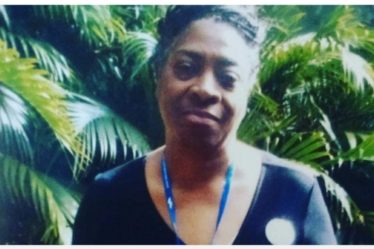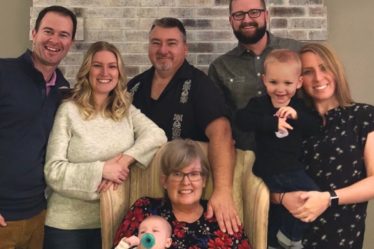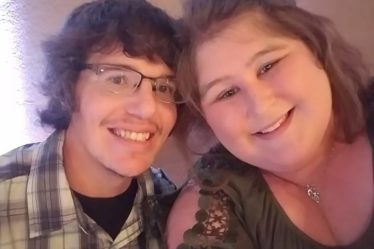
An interview with a Melanoma Survivor


By Jenna Lindman, Michelle Harn
I had the honor of attending both middle school and high school with Michelle Harn (back then, she was Michelle Parker). She was a year ahead of me in school, we had some of the same friends, would hang out every now and then, and would chat over AOL Instant Messenger (R.I.P.). My impressions of Michelle haven’t changed much; she’s still smart and witty with a warm smile and energetic demeanor.
I started connecting with Michelle again a few years ago when I wanted to start taking violin lessons, she was a violin instructor at Sam Ash part-time. Soon after reaching out, I began taking lessons from her. In our conversations between classes, I told her about what my team and I were up to with IgniteHope. She purchased an IgniteHope candle and told me a little bit about her experiences with cancer. Sadly, Michelle took a break from teaching for a summer and I took what turned out to be a permanent break from my violin career (again, R.I.P.).
When I first started posting on social media about this blog series, she was one of the first to message me saying she’d like to participate. I was excited to feature her story because it’s not the cancer story you always hear about. Michelle was diagnosed with Malignant Melanoma I, aka skin cancer. Her cancer was caught early and did not require any chemo or radiation treatment, she had what some people would (ignorantly) call, “an easy cancer,” or, “the good cancer.” I would like to thank Michelle for being so authentic in our interview, especially in the area of helping us understand why there isn’t an “easy” or “good” cancer and why those comments can be harmful. She offers us an important look at what the journey is like for someone who gets cancer yet has a positive prognosis.
Michelle Harn is 30 years old from Elmhurst, Illinois. She currently lives in Schaumburg, Illinois and works in Academic Publishing Operations for Higher Education. She also teaches violin lessons, and enjoys swimming, cooking, yoga, and video games. She was diagnosed with Malignant Melanoma I in June of 2008 when she was 20 years old and has been in remission for 10 years! Michelle, I appreciate your testimony to the survivor experience that needs to be shared more often.
What are the characteristics of the cancer you had?
A large, red mass on my right thigh that didn’t match any moles around it – it initially showed up around my Junior year of high school and grew larger and changed over time. By the time it was removed, it had reached approximately the size of my pinky fingernail.
What is the story behind how you were diagnosed?
I received a sunburn on my thighs when I was about 16 years old on a camping trip: pretty bad, but not 3rd degree, sun poisoning bad. A mass appeared on my thigh about six months later, which I didn’t think much about; I’ve always had plenty of moles and a new one didn’t concern me too much.
By the end of my freshman year of college, however, the mass had grown and changed. My then-boyfriend harassed me more or less daily during our college summer break to make an appointment with a dermatologist; as the mass on my thigh had developed a blotchy purple center and had started flaking and itching. I put it off for as long as possible because I was, quite frankly, afraid to get the results. I had the mass removed and biopsied; it took four different lab tests to determine whether or not it was malignant. I received a phone call each time telling me it was benign, then malignant, then benign, then finally and very certainly malignant. I immediately had surgery scheduled for a few weeks later.
What were the emotions you felt when you were told your diagnosis?
Terrified. I was 20 years old and was in no way equipped to cope with that kind of news, let alone the rollercoaster ride I had already been on for my diagnosis. To say I was anxious is putting it incredibly mildly.
How did you tell your family or friends and how did they react?
I was working at my dad’s office for the summer; I got off the phone with the doctor’s office for the final time, walked into [my father’s] office, shut the door, and had to look him in the eye and tell him that it was definitely cancer and that I was having surgery in a few weeks. I cried for probably an hour, and had to do it all over again with my mom when I got home from work. I let my parents handle informing the rest of the family because breaking the news and seeing their reactions over and over was draining. Telling my friends and boyfriend was also difficult; we all seem so young now when I look back at having those conversations. It was a mixed bag in terms of reactions: some tried to put on a brave face for me, some panicked, some shut down because this wasn’t something they would have had to cope with from a peer before.
What was your treatment plan? Did you experience side effects?
My treatment plan was to have the area around the melanoma excised 2 cm in all directions. I was mercifully just a few millimeters short of needing a skin graft, and instead received 40 total stitches: 20 interior and 20 exterior, performed by a plastic surgeon. It was an outpatient surgery and I was home by about 2 pm the same day.
Once home, I wasn’t able to use stairs for about a week and a half due to the stitches, so I was carried downstairs and spent that time in my parents’ basement sleeping on the pull-out couch, watching TV, and playing Xbox. The surgery site healed extremely well, and I was fortunate to not have any side effects beyond the discomfort that 40 stitches provided.
How did cancer change your daily routine? Did it impact your relationships?
I couldn’t leave the house at all for almost two weeks and couldn’t drive during that time as the surgery was on my driving leg – so I couldn’t work, go to orchestra rehearsals, or go out with friends. I had to use a crutch to move around as my right leg couldn’t bear any weight for about a month. I managed to finally get back to orchestra after three weeks, and had to have help carrying my violin case and getting to my seat – the first time in what was then a 15 year-long playing career. At the time, it certainly wounded my pride.
It did actually impact some relationships, as I was hurt at how few people reached out to me during my recovery. I don’t know what I expected – at age 20, probably a lot more than would be reasonable – but only a handful of my close friends made any effort to call, text, or visit. Ten years later, I can understand why: what do you say? What do you talk about? Do they want to talk about cancer, or not? Better just let them reach out to me. At the time, however, it was painful.
What was the hardest thing you faced while going through treatment?
The isolation. I recognize fully how easy my treatment was compared to that of others’ and am eternally grateful that surgery was all I needed to treat my cancer. However, I spent so much of my recovery alone and speaking to no one for hours and even days at a time; it was tremendously lonely. Speaking about my experiences with melanoma sometimes felt isolating as well, since it’s not an experience to which many people in my life can relate (fortunately). Some people respond better than others, but during my recovery and for the first few years following, I felt incredibly alone.
If a friend of yours was diagnosed with the same cancer, what would you want them to know? Don’t wait to get something checked out. Don’t wait for it to get worse because you’re afraid of being judged for your paranoia. Be diligent, do a monthly check, and don’t skip your annual appointments. And ultimately: you’re not alone! You have the love and support of everyone around you, even if you don’t think you do.
What’s the best support or advice you received? What was the worst or most annoying? The most annoying was “Just stay positive!” because it made me feel guilty for feeling down, or frustrated – which are perfectly valid emotions. The best advice was to accept that you will have good days and bad days, and that tomorrow is another day. One bad day won’t necessarily last forever.
Sometimes people report feeling abandoned, scared, or feeling that no one understands them through parts (or all) of their cancer journey. Did you ever feel like this? If so, how did you cope and how would you suggest others cope?
I definitely felt abandoned, scared, and like no one understood, and having watched my mom go through breast cancer twice in my life in addition to my experiences, I think it’s part of the journey. Therapy was a huge help to me in processing my fear and resentment, and I wish I would have started it far earlier. Having a non-judgmental sounding board who can give you methods of coping and working through the stickier, less pleasant thoughts and emotions can help tremendously. Acknowledging these feelings as part of the journey validates them and strips away the guilt you may feel for having them; it removes the expectation of worrying about how others perceive your thoughts. Therapy was invaluable.
Was there anything someone said to you about your cancer journey that really bothered you? “Oh, well luckily you only had melanoma, and not a real cancer.” This built upon feelings I already had, that I was making a big deal about something pretty small, that others have it much worse, that I don’t have the right to feel the way I do. Don’t minimize anyone’s struggle, or remind them that others have it worse, or how much worse it could be for them – it only serves to invalidate their feelings and make them hesitant to speak on them at all. Instead, be supportive and present with what they’re going through, rather than focusing on how much worse it could be.
Is there anything that has transformed in your attitude or outlook since being diagnosed?
Ten years is a long time, and your 20s tend to be a volatile timeframe unto themselves, so I’ve had a lot of shifts in how I feel about life since my initial diagnosis. Right now, I’m in a very positive and happy place in my life and am extremely grateful to be here, and I’m able to look back and respect the work that I’ve put in to have arrived here. I’m able to discuss my journey more freely and openly now, and I get mired in sadness about it less. I try to look more outwardly than inwardly, and try to spend my time and energy improving myself and the world around me whenever possible. I’ve also come to appreciate and accept that it’s okay to feel less than okay, but with the understanding that so far, a light has always appeared at the end of the tunnel. In short, my attitude and outlook have improved substantially.
Are there any challenges you face now?
I’m admittedly very diligent to the point of paranoia about using sunblock and being in the sun, and go out of my way to avoid sun exposure whenever possible. It can put a damper on outdoor fun, and I sometimes still feel like I’m being “that person” when insisting on finding some shade. However, that’s a price I’m always willing to pay to remain cancer-free as far as it’s in my control.
I’m still working to cope with anxiety about future reoccurrences of melanoma. I recently had a suspicious-looking mole removed from my arm and really struggled with my feelings of apprehension and stress. It was fortunately benign, but was a stark reminder that this is my past, present, and future and that I still have plenty of progress to be made in my coping mechanisms.
What else would you like to share? Ten years later, I’m not necessarily sorry that it happened. I have a greater appreciation for my life and how I choose to live it, and it gave me a pretty firm baseline of “On a scale of nothing to skin cancer, how bad is this?” It forced me to be better with coping with adversity (though it took a long time to get there) and has given me the ability to advocate for sun safety, something that many don’t take seriously. Melanoma isn’t 100% preventable but making educated decisions and taking precautions is something about which I’m very passionate, and am grateful to be able to use my experiences to help others.
Note from Jenna: Sometimes the best therapy is just talking to someone who’s been there. Imerman Angels One-on-One Cancer Support was created on the belief that no one should face cancer alone. While we recognize that each life situation is unique, we connect those that are predisposed to receive a cancer diagnosis, cancer fighters, survivors and caregivers with “Mentor Angels” – a previvor, a cancer survivor or caregiver who is as similar as possible in age, gender, and most importantly, experience. Mentor Angels provide chance to ask personal questions and receive support from a peer who has been down the same road before. The service is absolutely free and helps anyone touched by any type of cancer, at any stage, at any age, living anywhere in the world. We want to ensure no one faces cancer alone -together we are stronger! Go to www.imermanangels.org for more information



